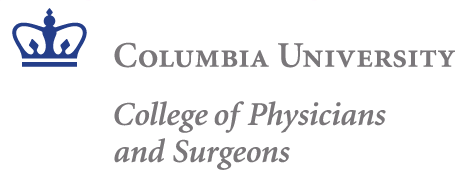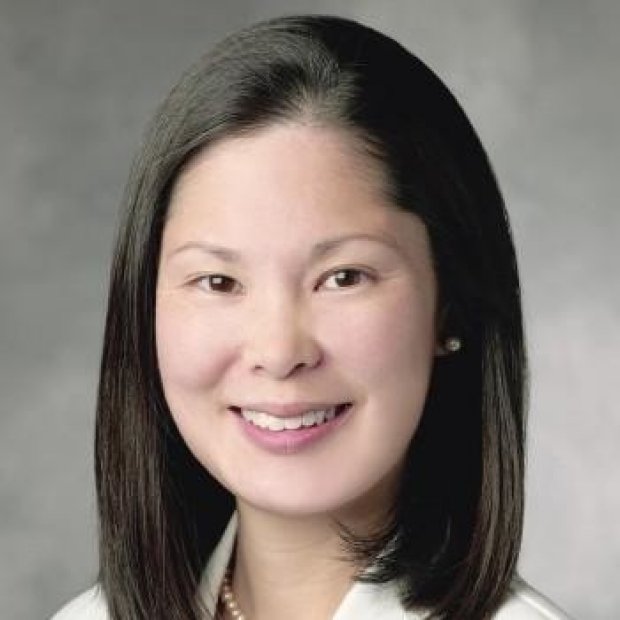Main Menu
| Welcome | Clinical Training | Research Training | Conferences | Applications | Fellows | Alumni |
Alumni Profiles
Matthew Freeby, MD
I am an Assistant Clinical Professor of Medicine and the Associate Director of Diabetes Clinical Programs at the David Geffen UCLA School of Medicine. I completed my residency in internal medicine at UCSD (2005) and a fellowship in Endocrinology, Diabetes and Metabolism at Columbia University (2008). After training, I joined the faculty at Columbia specializing in diabetes and providing care at the Naomi Berrie Diabetes Center. There, I collaborated with researchers conducting studies in diabetes-related stem cell research and non-invasive measures of beta cell mass. More recently, I joined UCLA and now direct their diabetes programs. I am involved in multiple projects related to diabetes education, gestational diabetes care as well as quality improvement in diabetes. I am extremely grateful for my training at Columbia, which has prepared me for my current responsibilities. The strength of my clinical training in diabetes during fellowship and the research mentorship that I received during that time have been instrumental in guiding my current career path.
Jessica Fleischer, MD
I completed my fellowship at Columbia University College of Physicians & Surgeons in 2004 and joined the faculty from 2004 to 2011. My focus at Columbia was clinical practice in the Metabolic Bone Diseases Unit while also having teaching responsibilities such as directing the medical student Endocrine pathophysiology course and serving as an Associate Program Director for the Internal Medicine Residency Program. Currently, I am in practice in Englewood, NJ where I work as an Osteoporosis specialist in an Orthopedic group. My years at Columbia under the leadership of world-renowned physicians and mentors provided me with the expertise to perform and interpret bone densitometry, reduce fracture risk and treat a variety of calcium and metabolic bone disorders. The inspiring clinicians I worked with during fellowship and the breadth of patients I saw have given me the skills and empathy needed to practice my specialty.
Hyesoo Lowe, MD
I completed my Endocrinology training at Columbia in the 2000s and practiced clinical endocrinology in a busy private practice for 12 years. Subsequently I returned to Columbia and am focused on expanding the clinical services of the Thyroid Center at Columbia. I am currently an Assistant Professor of Medicine and the Medical Director of the Thyroid Biopsy Program. I have advanced training in diagnostic thyroid ultrasound and biopsy, and have an active role in fellowship training in these areas. The fellowship program at Columbia was instrumental in teaching me how to think critically in both clinical and research arenas. I am fortunate to have been taught at the highest level of expertise in the varying subspecialty areas of Endocrinology. Most of all, I am grateful for the incredible collegiality and support from the faculty and co-fellows, in whom I have lifelong mentors and friends.
Utpal Pajvani, MD
I am a physician-scientist at the Columbia University Medical Center. My primary teaching responsibilities are on the inpatient and outpatient Endocrinology services, as well as the General Medicine inpatient service. In addition, I see patients with Type 1 or Type 2 Diabetes at the Naomi Berrie Diabetes Center. Beyond my teaching and clinical responsibilities, I run a translational research program that focuses on the role of developmental pathways in the regulation of Type 2 Diabetes and Non-Alcoholic Fatty Liver Disease, and the use of existing therapeutic agents in other scientific areas in novel applications to ameliorate obesity-induced complications. Specifically, my lab studies molecular mediators of excessive hepatic glucose production and lipogenesis in mouse models of obesity and insulin resistance, and determines whether these pathways are dysregulated in human disease.
The early successes I've had in my career are directly attributable to the training I received during my Endocrinology fellowship at Columbia, primarily in the flexibility afforded me by leadership at the Departmental and Division level, as well as the scientific direction from my mentors. I was able to "fast-track" from the Internal Medicine residency program after my PGY2 year; this allowed my PGY3 year to be nearly 100% protected for research. As a result, I was able to generate sufficient preliminary data to apply for and receive a F32 fellowship from the NIH/NIDDK during my PGY4 year, and eventually a K08 Career Development Award during my PGY6 year, leading to a smooth transition from fellow to junior faculty. Throughout this process, I was able to adjust the scheduling of my clinical training to be compatible with my basic research. This fact was readily understood by both the Division as well as my co-fellows, for which I was and remain grateful. Even now, balancing a burgeoning research program with teaching and clinical responsibilities is not trivial, and requires ongoing support from colleagues and leadership. Columbia is a special place, with amazing clinical care and breadth of research opportunities, and I feel fortunate to have trained here and to take part in the training of the next generation of Endocrine fellows.
Aimee Shu, MD
I'm a clinician-educator at Stanford University Medical Center. My practice focuses on female reproductive and bone health. Through a combination of clinic precepting, ward service, and lectures, I teach students and house officers from various disciplines (e.g. endocrinology, internal medicine, gynecology, sports medicine, rheumatology).
I feel lucky to have trained at Columbia as fellow in endocrinology, and later as a "supra-fellow" in women's health. I learned to think independently and critically about clinical problems and research questions. Under the guidance of skilled mentors, I saw and took care of a variety of endocrine disorders and was well-prepared to join a busy clinical practice. The Columbia "network" is strong: and we were fortunate to meet thoughtful endocrinologists from around the world through our grand rounds and visiting professorship programs. To this day, I keep in touch with my Columbia mentors.
Marcella Walker, MD
I’m a Professor of Medicine in the Division of Endocrinology at Columbia University Medical Center (CUMC). My position entails a combination of clinical research, teaching and caring for patients with metabolic bone diseases and other endocrine disorders. My research focuses on 1) racial differences in bone macro- and microstructure, 2) primary hyperparathyroidism and 3) genetics of osteoporosis. My clinical activities involve caring for patients in the Metabolic Bone Diseases Unit at Columbia with a variety of disorders including primary hyperparathyroidism, postmenopausal and glucocorticoid-induced osteoporosis, idiopathic osteoporosis, hypoparathyroidism, Paget’s disease, fibrous dysplasia, osteomalacia and osteopetrosis. I have a number of academic responsibilities including teaching Endocrine pathophysiology to medical students; serving as a preceptor for 3rd year medical students during their Medicine Clerkship and to Endocrine Fellows in Endocrine Clinic; and attending on the Endocrinology consult services with residents and fellows.
My fellowship, the academic atmosphere, and the opportunities available here at Columbia played key roles in attaining my current position. During my fellowship, under the tutelage of mentors, I embarked on and developed clinical research projects that led to multiple publications, collaborations and external (NIH and foundation) and internal funding for related projects that have ultimately become the basis of my research career. The atmosphere was very warm, nurturing and fostering. During those years, I learned the necessary practical skills to succeed as a clinical researcher from my mentors and how to pursue an observation to a publishable result. Soon after, as a junior faculty member, I was able to take advantage of formal didactic training in research design and biostatistics that fortified what I had learned hands-on, while achieving a Masters Degree in Biostatistics at the Mailman School of Public Health through the Irving Institute for Clinical and Translational Research. On a more personal level, as a woman who wanted to pursue a career in academic medicine, it was valuable to have successful senior female physician-scientists as role models within the Division who encouraged and guided me.
The breadth and depth of clinical training available at Columbia is phenomenal! While many academic centers are strong in a few aspects of Endocrinology, I was struck as a fellow that Columbia has clinical and/or research experts in almost every aspect of Endocrine disease – from Diabetes, Neuroendocrinology, and Obesity to Thyroid Disease, Metabolic Bone Disease, and Adrenal disorders. Likewise, the patient population is incredibly diverse as CUMC serves both as a tertiary referral center and the primary care center for the catchment area surrounding our hospital. After fellowship, I felt confident in my ability to manage and teach future fellows about a wide array of endocrine disease.
Marie Thearle, MD
I am working for the NIH at the Phoenix-NIDDK branch as the Chief of the Unit on Energy Physiology. So full time clinical research and fellowship director for the visiting fellows learning about clinical research. I also do a volunteer Endocrine clinic 1/2 day a week at Phoenix Indian Medical Center.









